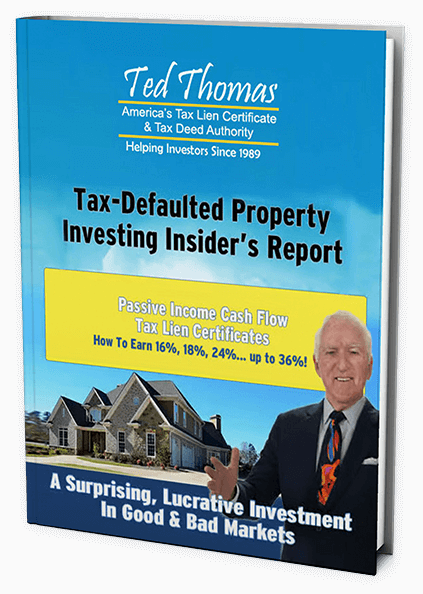Alternative real estate investments might be just what you’re after if you’re looking for a way to diversify your real estate investments? Tired of the typical single-family homes and condos? Then let’s take a look at alternative real estate investments.
From self-storage units, RV parks, mobile home parks, and more – there are plenty of opportunities out there if you’re willing to look around. Today we’ll explore some of these unique investment options and discuss why one could be perfect for you.
Alternative real estate investments can provide you with a wide range of benefits that traditional residential properties don’t offer. For starters, they often require less capital upfront in order to get started. With lower costs associated with acquiring the property, the potential returns may also be higher than those found in other types of real estate investments.
Finally, alternative real estate investments can provide you with stability during economic downturns when traditional markets experience volatility or declines in value. The nature of many of these types of investments ensures that regardless of market conditions, you could still benefit from steady income streams over extended periods of time.
Now let’s dive deeper into alternative real estate investments, how they work and why now is the perfect time to invest.
Table of Contents:
Definition of Alternative Real Estate Investments
Alternative real estate investments differ from traditional investments. To gain an understanding of this type of investment, let’s look at what some terms mean.
Investment real estate refers to land or buildings purchased with the intention of generating income.
Equity is the difference between the asset’s value and any liabilities associated with it.
Lastly, capital represents wealth in the form of money or other assets owned by an individual or business entity.
With these terms defined, let’s look into how alternative real estate investments work.
Advantages Of Alternative Investments
Alternative investments can provide numerous advantages for investors looking to grow their long-term wealth. One of the main benefits is diversification, as alternative investments offer a way to spread out your portfolio and reduce risk across different asset classes. Additionally, they tend to have higher returns than traditional investments like stocks or bonds.
An advantage of alternative real estate investments is that they’re often less volatile than other investment types. This means they may be better suited for those who want steady returns over time. Furthermore, these kinds of investments can also provide more control in terms of how you manage the assets, such as being able to choose when and where to invest.
With these potential benefits, it’s easy to see why so many people are turning towards alternative real estate investments today. I’ll cover several of these, but I especially want to tell you about an alternative way to invest in real estate, tax liens and tax deeds, which I’ve been involved in for over 30 years. Tax liens and deeds enable small investors to generate massive cash flow as well as steady passive income streams without a lot of risk.

Types Of Alternative Real Estate Investments
Now let’s talk about several types of alternative real estate investments.
Alternative real estate investments offer a way to diversify your portfolio and generate high returns. This can include land banking, private equity funds, short-term rentals, mobile parks, and tax liens and tax deeds.
Land banking involves buying up vacant or underutilized parcels of land with the intention of holding them until they appreciate in value.
Private equity funds are typically large pools of capital from multiple investors that allow for larger scale investments than individual investors could make on their own.
Short-term rental opportunities may exist through services such as Airbnb where landlords rent out rooms or homes on a short-term basis at higher rates than long-term leases provide.
Mobile parks involve purchasing a property with several mobile home units which tenants rent over time.
Last but not least, tax liens and tax deeds involve investing in real estate whose owners have failed to pay property taxes. You profit from tax lien certificates when the owner ultimately pays off the lien, then you’re paid back your invested capital, plus interest, which can be as much as 36%. When you purchase tax deeds, you get the property, which you can acquire mortgage-free for a fraction of its assessed value.
These types of alternative real estate investments each come with their own unique set of risks and rewards depending on market conditions and other factors.
Private Equity Funds
Private equity funds are a form of alternative investment that involve pooling money from multiple investors to purchase an ownership stake in companies or assets. In the case of alternative real estate investing, a private equity fund can be used to buy into various types of real estate projects such as residential housing, commercial buildings, or land banking opportunities.
The primary benefit of investing in a private equity fund is that it allows investors to access larger deals than they would otherwise be able to do individually. Investing in these funds also provides greater liquidity since there are often more buyers available than sellers at any given time.
As with all forms of investment, you should research potential opportunities thoroughly before committing any capital.
Land Banking
Land banking is an alternative real estate investment strategy that involves buying and holding land for future development or resale. It’s a form of speculative investing which is riskier, since you’re betting on the appreciation in land value over time. The goal is to purchase land at a low price and then hold it until its value increases enough to make a profit when sold.
When looking into land banking investments, you should research the area where you wish to buy property and look out for any zoning changes or upcoming infrastructure projects that could lead to increased demand and higher values. Also be aware of regulations around purchasing undeveloped land, such as environmental protection laws which may impact the cost of developing the site down the line.
Investors who decide to pursue this type of alternative real estate investing must have patience and financial resources available in order to ride out any downturns in the local market while waiting for the piece of land to appreciate in value.
Mobile Home Parks
Mobile home parks can be profitable alternative real estate investments if done correctly, but they also come with unique challenges. Here are four key things to consider when investing in a mobile home park:
1. Location – This is paramount for any real estate investment, especially for mobile homes which typically require more upkeep than other types of properties. Look for areas that have high job growth potential and good school districts nearby.
2. Tenants – When it comes to tenant selection, you want people who will pay their rent on time and keep the property well-maintained. Research local rental laws so you know what kind of screening process to use when renting out units at your mobile home park.
3. Maintenance – You need to factor in the cost of regular maintenance such as lawn care, plumbing repairs, etc., into your budget. Make sure you’re prepared to handle these costs before purchasing.
4. Options – There are many different options for financing or leasing a mobile home park depending on how much money you have available upfront and how long you plan on owning it. Consider working with a financial advisor or accountant who can provide advice about the best option based on current market conditions and interest rates.
Short-Term Rentals
Short-term rentals of residential and commercial buildings are gaining popularity in the real estate market as an alternative investment. These rental properties are also known as vacation rentals or temporary housing.
The benefits of short-term rental investments include higher returns than traditional long-term leases due to the cost structure associated with these deals. Short-term renters typically pay more per night than they would if they were signing up for a longer period of time. Property owners also have greater flexibility when it comes to setting rates and changing lease terms because tenants come and go quickly.
Tax Liens And Deeds
Over 30-years ago, I discovered tax lien and tax deed investing and never looked back. Of the alternative real estate investments, tax lien certificates and tax deeds offer something for everyone as you will see.
Tax Lien Certificates
Tax lien certificates are issued by the government when a homeowner fails to pay their property taxes. You purchase tax lien certificates directly from the local county or municipality at a public auction, and you earn a high rate of interest when the delinquent taxpayer pays off their debt. The rate of interest depends on the state, but could be 16%, 18%, 24% or even 36%.
How much do tax lien certificates cost? They come in all amounts. A tax lien certificate could cost $50, $500, or $5,000. There are millions of certificates available in amounts to suit every budget.
Tax lien certificates are an excellent passive investment because over 95% of delinquent taxpayers will redeem the certificate. In other words, they will pay it off, and the local government will send you a check for all your invested capital plus the high rate of interest.
What happens if the certificate is not redeemed? By buying the tax lien certificate, you have purchased the tax lien. Therefore, if the certificate is not paid by the time the redemption period expires, you can foreclose on the property.
Tax lien certificates are secured by real estate. You either get all of your money back plus interest or you get the property, and you get the property without a mortgage or deed of trust loan.

Tax Deeds
Tax deed investing works similarly, but instead of buying just a certificate, you purchase the deed itself in order to gain full ownership of the property. This type of investment requires more capital than purchasing a tax lien certificate due to the transfer of ownership involved; however, it can also yield higher returns if handled correctly.
At a tax deed auction, the bidding begins at the back taxes, and the highest bidder wins. It’s not uncommon at all to purchase real estate for 10, 20, or 30 cents on the dollar of the tax assessed value at a tax deed auction. Additionally, you get the property mortgage-free.
When done right, investing in tax liens or deeds can be very profitable and provide passive income streams over time.
Research into each state’s laws regarding tax sale investing is essential before embarking on this venture as regulations vary depending on location. You must know the rules and do your homework. With some effort and knowledge, you can take advantage of tax sale opportunities across the country with minimal risk while potentially reaping great rewards and gaining financial freedom as many of my students can attest to.
Impact On Long-Term Wealth
Now let’s look at how alternative real estate investments impact long-term wealth accumulation. Investing in alternative real estate investments can have a significant impact on long-term wealth, and due to their low correlation to other asset classes such as stocks and bonds, diversifying into alternative real estate investments provides you with a way to protect yourself against market volatility.
The most important factor for building long-term wealth is having consistent cash flow over time. This enables you to take advantage of compounding returns.
Investing in traditional residential or commercial real estate also requires capital appreciation which may not be realized until years after the original purchase date. Alternative real estate investments often offer more immediate returns through lease payments, allowing you to benefit sooner rather than later.
Overall, investing in alternative real estate has numerous benefits that can help accelerate your journey towards financial freedom while protecting you during uncertain economic times. It’s become increasingly popular among savvy investors who understand the potential rewards associated with this type of investment strategy, including higher returns and improved portfolio protection through diversification.
Frequently Asked Questions
How Much Money Do I Need To Start Investing In Alternative Real Estate?
This is a common question, and the answer will depend on your individual investment strategy, the type of asset being purchased and its intended use.
The amount of money required to begin investing in alternative real estate can range from small projects with minimal costs up to millions of dollars for larger-scale opportunities. Generally speaking, you should have sufficient funding available at closing so that you can make any necessary repairs or renovations without having to borrow additional funds during the course of the project.
In addition to providing upfront capital, most investors also look for ways to reduce their overall risk by diversifying their portfolios across multiple properties and markets. This is easy to do with tax lien and tax deed investing since tax delinquent real estate is sold in over 3,000 counties across the USA.
Ultimately, each investor’s situation is unique so it pays to do some research and consult with professionals who specialize in this area before taking the plunge into alternative real estate investments.
What Are The Risks Associated With Alternative Real Estate Investments?
Alternative real estate investments involve taking on risk to some degree. For example, when investing directly into property, you may be exposed to market volatility, changes in rental prices due to economic conditions, or unexpected increases in costs related to upkeep and maintenance of properties.
When assessing the level of risk involved with alternative real estate investments, you should also examine the current state of the real estate market. This includes analyzing trends within an area where you plan to purchase a property or invest funds into a project.
Other factors to consider include macroeconomic forces such as inflationary pressures or industry-specific events which could affect returns on investments over time. It’s essential to take all these considerations into account before deciding whether an investment property is right for you and your financial goals.
In addition to researching alternative real estate investments, consulting experienced professionals who have knowledge about specific markets and strategies can assist with creating a successful plan for long-term success with minimal losses along the way.
What Strategies Should I Use To Maximize Returns?
When it comes to maximizing returns on investments, there are a variety of strategies you can use. Cash-flow investment, rentals, and property flipping are all viable options.
Cash-flow investment has the potential to provide steady growth even during times of economic turbulence. With cash-flow investment, the strategy is fairly straightforward: purchase an asset that generates revenue quickly or creates consistent passive income over time.
For example, tax deed properties can be purchased for pennies on the dollar, which leaves you with a very large profit margin. You can generate cash flow quickly by utilizing a “buy low, sell low” strategy. You buy the tax deed property for a large discount and also sell it at a discount to make a quick sale.
If you’re interested in creating passive income, you can offer seller financing on your tax deed real estate. This way you can collect monthly installment payments for years from the sale of the property.
Vacation rentals present another option where investors can capitalize on seasonal demand cycles by renting out furnished units directly through online platforms like Airbnb or VRBO at premium prices.
Lastly, don’t forget market analysis which involves researching local trends in order to identify attractive opportunities before competitors do – such as buying low priced homes in up & coming neighborhoods then flipping them after making necessary improvements for maximum profit margins down the line. However, the savviest property flippers have discovered that the best deals on real estate can be found at a tax deed auction.
By taking advantage of alternative real estate investment strategies you can achieve optimal returns regardless of economic conditions.
How Does The Tax System Affect Alternative Real Estate Investments?
It’s no secret that taxes have a huge impact on our financial decisions. When it comes to real estate investments, the tax implications can be especially complicated. Understanding how taxes affect alternative real estate investments is essential for maximizing returns:
1. Get Legal Advice: Consult with an experienced tax lawyer or accountant who specializes in real estate.
2. Know Your Deductions: There are many deductions available for property investors. Knowing what these are can save you money.
3. Utilize Tax-Advantaged Accounts: Certain types of retirement accounts like self-directed Roth IRAs offer tax breaks for certain types of investments, including those related to real estate. Investing using these accounts can result in significant savings each year on taxes paid.
4. Keep Up With Changes In Tax Laws: Staying up to date on any new regulations affecting alternative real estate investments is important so that you don’t miss out on potential opportunities or get hit with unexpected penalties.
Your best course of action is to consult with an experienced professional like a tax attorney or CPA.
What Kind Of Legal Advice Should I Seek When Investing In Alternative Real Estate?
When investing in real estate, there are many legal considerations to keep in mind. Seek professional advice and have a qualified real estate lawyer on hand. This holds true for traditional investments as well as alternative investments.
Having the right information can make all the difference when it comes to navigating the complexities of alternative real estate investments. Real estate attorneys can provide valuable guidance, help you review contracts and agreements, and advise you on how best to protect your interests from liability and taxation issues.
No matter what type of real estate investments you’re considering – whether traditional or alternative – seeking out specialist legal advice should be part of your due diligence process. Taking this proactive approach gives you peace of mind knowing your rights are protected throughout your investing journey.
Conclusion
Alternative real estate investments offer a great way to generate cash flow and residual income with potentially higher returns than traditional investments. However, it’s important to remember that there are risks associated with alternative real estate investments, so you should make sure you understand the potential risks and rewards before making any decisions.
You’ll also want to think about how taxes may affect your investment strategy and seek legal advice – especially when it comes to contracts or other legal documents related to your investments.
With the right research and planning, alternative real estate investments can be an excellent choice.
In conclusion, I encourage everyone interested in this option to take some time to research before committing funds. With proper preparation, you can make wise choices that will provide positive long-term results!
If you’d like to know more about tax lien certificates and tax deed investing, Ted Thomas provides full support and complete training with home study courses, Q&A webinars, live tutorials, workshops, web classes, personal coaching with certified coaches, and an interactive map and auction calendar research tool that allows you to visit each county online to find the details about upcoming auctions.
Start your money-making journey by attending Ted’s 7-Hour foundational training. Download your Free Insiders Report & Book your seat today to attend the Retire Rich From Home Virtual Workshop.
Want to earn massive income from alternative real estate investing? Would you like to buy mortgage-free homes for pennies on the dollar? Or earn double-digit interest rates secured by real estate? Then get started today with this Free Gift.

Ted Thomas is America’s Leading Authority on Tax Lien Certificates and Tax Deed Auctions, as well as a publisher and author of more than 30 books. His guidebooks on Real Estate have sold in four corners of the world. He has been teaching people just like you for over 30 years how to buy houses in good neighborhoods for pennies on the dollar. He teaches how to create wealth with minimum risk and easy-to-learn methods.




